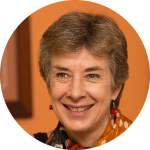-
Member Login
- Home
- About
- Institute Groups
- Membership
- Events
- News & Publications
- Institute Programs
- Resources
- Jobs Board
- Contact Us
- Site Info
Jane Munday
Jane Munday
Abstract | More facts or living the experience?
Contentious projects truly are a ‘wicked problem’, as evidenced by protests, social media campaigns, legal challenges and costly delays, compounded by polarised debate and the 21st Century ‘burning deck’ of cynicism and distrust of our democratic processes. Then there’s contested land uses, cumulative environmental and social impacts, worries about the ‘dread’ issues, distributive justice, sustainability, climate change and Aboriginal self-determination about projects on their land.
Solutions are rarely found in ‘educating’ the public about the ‘facts’, rather in understanding people’s lived experiences of impacts and acknowledging and addressing their concerns.
Communication on ‘hot topics’ should tap into values and emotions, draw on narrative, build understanding and help the community imagine what a project really means. It must be based on relationships, trust, companies’ long-term social performance and the level of community acceptance of the pace, type and scale of development.
The focus on the biophysical during impact assessment often foregrounds scientific and technical studies, whereas it is the sidelined people issues (social, cultural, human rights, health) that derail projects. This demands empathetic listening, real influence over decisions and a deeper approach to engagement than argumentative public meeting, newsletters and a ‘have your say’ website.
Pointing the finger at ‘activists’ is also self-defeating. People place more trust in environmental ‘watchdogs’ than government and companies, will not trade off environment and lifestyle threats for economic benefits and are more motivated by fear of loss than gain.
To accept the benefits of contentious resource projects, people must feel safe and in control; have confidence that their environment, lifestyles and livelihoods will be protected; trust Government’s regulatory and monitoring regime; and believe that industry is honest, transparent and technically competent.
This presentation argues for deliberative approaches, where people engage in dialogue, seek expert advice and work collaboratively on solutions, good decisions and outcomes.
Bio | Jane Munday
 Jane Munday has worked as a journalist in Melbourne and in senior government communication positions in Victoria and, for the past 23 years, in the Northern Territory. After four years with the Department of the Chief Minister, she established a strategic communication consultancy in Darwin in 2004, specialising in strategic communication, community engagement and social impact assessment. She sold the business in 2015 and is now enrolled as a PhD Candidate at the Northern Institute of Charles Darwin University researching qualitative approaches to social impact assessment. She works part-time as Senior Advisor with True North Strategic Communication (formerly Michels Warren Munday) and has extensive experience of working with remote communities across the Northern Territory, including major projects, government policy and resource development. Jane has qualifications in journalism, psychology, public administration, business management, community engagement and social impact assessment.
Jane Munday has worked as a journalist in Melbourne and in senior government communication positions in Victoria and, for the past 23 years, in the Northern Territory. After four years with the Department of the Chief Minister, she established a strategic communication consultancy in Darwin in 2004, specialising in strategic communication, community engagement and social impact assessment. She sold the business in 2015 and is now enrolled as a PhD Candidate at the Northern Institute of Charles Darwin University researching qualitative approaches to social impact assessment. She works part-time as Senior Advisor with True North Strategic Communication (formerly Michels Warren Munday) and has extensive experience of working with remote communities across the Northern Territory, including major projects, government policy and resource development. Jane has qualifications in journalism, psychology, public administration, business management, community engagement and social impact assessment.
Her key areas of interest are social licence to operate, community engagement, deliberative approaches, risk communication and better consideration of the human impacts of projects.
We acknowledge and value the rights and interests of Indigenous Peoples in the protection and management of environmental values through their involvement in decisions and processes, and the application of traditional Indigenous knowledge.

